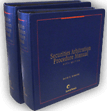State Laws Protecting Seniors
In addition to the regulatory and procedural differences in affect when an elderly customer files a claim with FINRA Dispute Resolution, many states have enacted statutes specifically to protect seniors which apply in arbitration.
State Statutes That Apply to Senior Investors
California and Florida[1] have statutes that prohibit the financial exploitation of the elderly and provide for special civil remedies.
California’s Elder Abuse and Dependent Adult Civil Protection Act provides a private cause of action for financial abuse of a person 65 or older, [2] which can occur when a person or entity:
- Takes, secretes, appropriates, or retains real or personal property of an elder or dependent adult to a wrongful use or with intent to defraud, or both.
- Assists in taking, secreting, appropriating, or retaining real or personal property of an elder or dependent adult to a wrongful use or with intent to defraud, or both.[3]
Bad Faith under the California Statute – An individual filing a claim under this statute only has to prove bad faith; intent to defraud is unnecessary.[4] If the defendant knew or reasonably should have known that the elder had the right to have the property transferred or made readily available to the elder and nevertheless engaged in the prohibited conduct, then the bad faith requirement is met.
Florida Elder Abuse Statute-A Model for the Nation
As a state with vast numbers of senior citizens, Florida enacted in 1973 the Adult Protective Services Act, F.S. §§ 415.101 through 415.113. This statute creates a private cause of action for a violation of the Act and provides that “a vulnerable adult who has been abused, neglected or exploited as specified in this chapter has a cause of action against any perpetrator and may recover actual and punitive damage for such abuse, neglect or exploitation.” The statute also provides for recovery of attorney’s fees and costs. Under F.S. § 415.102(7)(a), “exploitation” occurs when a person who:
- Stands in a position of trust and confidence with a vulnerable adult and knowingly, by deception or intimidation, obtains or uses or endeavors to obtain for use, a vulnerable adult’s funds, assets, or property with the intent to temporarily or permanently deprive a vulnerable adult of the use, benefit, or possession of the funds, assets, or property for the benefit of someone other than the vulnerable adult; or
- Knows or should know that the vulnerable adult lacks the capacity to consent, and obtains or uses, or endeavors to obtain or use, the vulnerable adult’s funds, assets, or property with the intent to temporarily or permanently deprive a vulnerable adult of the use, benefit, or possession of the funds, assets, or property for the benefit of someone other than the vulnerable adult.
More specifically, the statute states that “exploitation” includes the following conduct that could very well have occurred in your clients’ brokerage accounts:
- Breaches of fiduciary relationships, such as the misuse of a power of attorney or the abuse of guardianship duties, resulting in the unauthorized appropriation, sale, or transfer of property;
- Unauthorized taking of personal assets;
- Misappropriation, misuse, or transfer of moneys belonging to a vulnerable adult from a personal or joint account; or,
- Intentional or negligent failure to effectively use a vulnerable adult’s income and assets for the necessities required for that person’s support and maintenance.
A “fiduciary relationship,” states the statute, “means a relationship based upon the trust and confidence of the vulnerable adult in the caregiver, relative, household member, or other person entrusted with the use or management of the property or assets of the vulnerable adult. The relationship exists where there is a special confidence reposed in one who in equity and good conscience is bound to act in good faith and with due regard to the interests of the vulnerable adult. …”
Attorney’s Fees Under These Statutes
Florida awards attorney’s fees to the prevailing party regardless of who that is.[5] Under the California statute, if the protected person proves by a preponderance of the evidence that the defendant is liable for financial abuse, the statute provides for the authority to grant attorney’s fees. And, if the plaintiff proves by clear and convincing evidence that the defendant is guilty of oppression, fraud or malice, he or she may recover punitive damages.[6]
[1] Cal. Welf. & Inst. Code § 15600 et seq.; Fla. Stat. § 415.101 et seq.
[2] Cal. Welf. & Inst. Code §§ 15610.27, 15610.30, 15657.5.
[3] Cal. Welf. & Inst. Code § 15610.30.
[4] Cal. Welf. & Inst. Code § 15610.30.
[5] See Fla. Stat. § 415.1111.
[6] See Cal. Welf. & Inst. Code § 15657.5 and Negrete v. Fidelity and Guaranty Life Insurance Co., 444 F.Supp 2d 998 (C.D.Ca. 2006).


